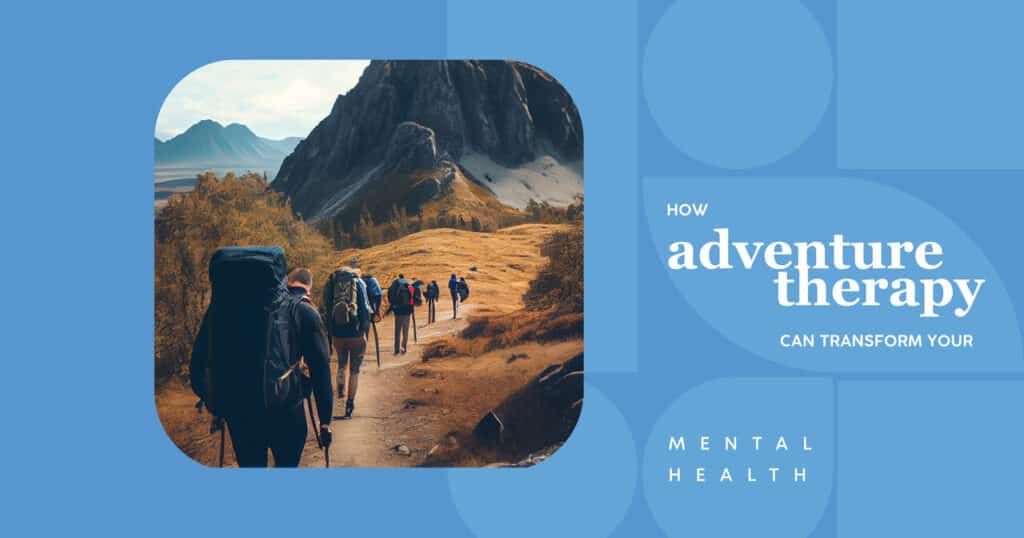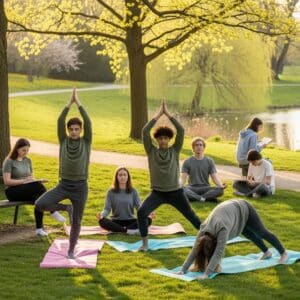Introduction to Adventure Therapy
In today’s fast-paced world, mental health is more important than ever. Many people are seeking alternative therapies to improve their well-being, and Adventure Therapy is gaining recognition as a powerful tool for mental health transformation. This comprehensive guide will explore how Adventure Therapy can transform mental health, detailing its benefits, methods, and real-life success stories.
What is Adventure Therapy?
Adventure Therapy is a type of psychotherapy that combines outdoor activities with traditional therapeutic practices. It involves physical challenges and nature-based activities to promote psychological healing and personal growth. Adventure Therapy can include hiking, rock climbing, kayaking, and camping. This form of therapy integrates elements of Wilderness Therapy and experiential therapy to provide a holistic approach to mental health.
The Benefits of Adventure Therapy
Enhancing Physical Health
Adventure Therapy involves physical activities that can improve your overall health. Regular physical exercise boosts cardiovascular health, strengthens muscles, and enhances flexibility. The benefits of Adventure Therapy also include improved physical health and increased stamina.
Reducing Stress and Anxiety
Engaging in outdoor activities helps reduce stress and anxiety. Combining physical exertion, fresh air, and nature’s calming effect can significantly lower cortisol levels and promote relaxation. This time in nature can have positive effects on mental health by providing a natural setting for reflection and healing.
Building Resilience
Overcoming physical and mental challenges in Adventure Therapy builds resilience. Participants learn to face fears, adapt to new situations, and develop problem-solving skills that can be applied to everyday life. This process fosters psychological resilience and helps individuals develop a growth mindset.
Improving Self-Esteem and Confidence
Completing challenging activities boosts self-esteem and confidence. Adventure Therapy encourages individuals to push their boundaries and achieve goals, promoting a sense of accomplishment and enhancing their overall confidence level. The adventure therapy outcomes are often positive and long-lasting.
Fostering Social Connections
Many adventure therapy programs are conducted in groups, providing opportunities for social interaction and teamwork. Building relationships with others with similar experiences can provide emotional support and a sense of community. These social skills are crucial for improving interpersonal relationships and effective communication.
How Adventure Therapy Works
Therapeutic Activities
Adventure Therapy incorporates various activities designed to challenge both the body and mind. Common adventure therapy activities include:
- Hiking: Promotes physical fitness and provides a peaceful environment for reflection.
- Rock Climbing: Enhances problem-solving skills and builds trust through teamwork.
- Kayaking: Encourages teamwork and communication skills.
- Camping: Fosters self-reliance and connection with nature.
- White Water Rafting: Offers thrilling adventure and builds resilience and teamwork.
The Role of Nature
Nature plays a vital role in Adventure Therapy. Research shows that spending time in natural settings can reduce stress, elevate mood, and enhance overall well-being. The natural setting provides a calming backdrop that allows participants to focus on their therapy without the distractions of daily life. This exposure to nature is a key component of the therapeutic process.
Combining Therapy with Adventure
Adventure Therapy combines the physical and emotional challenges of outdoor activities with traditional therapeutic techniques. This holistic approach ensures that individuals face their fears and limitations while receiving the support and guidance needed to process their experiences. The productive element of challenging activities helps reinforce positive behavior and thought patterns. This combination of therapeutic interventions and adventure forms the core of adventure-based therapy.
Who Can Benefit from Adventure Therapy?
Individuals with Anxiety and Depression
Adventure Therapy is particularly beneficial for individuals struggling with anxiety and depression. Physical activities help release endorphins and natural mood lifters, while the therapeutic aspect addresses underlying emotional issues. This form of therapy can also be an effective intervention for mental health disorders.
Veterans with PTSD
Many veterans with PTSD have found relief through Adventure Therapy. The activities provide a safe way to confront and overcome their fears, while the camaraderie of group sessions helps rebuild trust and connection. This approach can significantly improve their emotional functioning and overall well-being.
At-Risk Youth
Adventure Therapy programs for at-risk youth focus on building self-esteem, improving social skills, and providing a sense of accomplishment. These programs can be life-changing, offering young people a new perspective and direction. The Department of Health and Ageing supports such initiatives for their long-term benefits.
Adventure Therapy vs. Traditional Therapy
Hands-On Experience
Unlike traditional therapy, which often occurs in a clinical setting, Adventure Therapy is hands-on and experiential. This approach can be more engaging for individuals who struggle with conventional talk therapy. The experiential learning component makes the therapy sessions more dynamic and impactful.
Immediate Feedback
The challenges faced in Adventure Therapy provide immediate feedback. For example, successfully climbing a rock wall gives instant gratification and a sense of achievement, which can reinforce positive behavior and thought patterns.
Group Dynamics
Adventure Therapy often involves group activities, which can enhance social skills and provide a support network. Participants learn to rely on and support each other, fostering a sense of community and belonging. This cooperative activity approach helps in conflict resolution and building interpersonal skills.
How to Get Started with Adventure Therapy
Finding a Qualified Therapist
When considering Adventure Therapy, finding a qualified therapist experienced in this field is essential. Look for professionals with certifications in mental health counseling and outdoor education. Mental health professionals with a background in outdoor therapies can provide the best guidance.
Setting Realistic Goals
Before starting Adventure Therapy, discuss your goals with your therapist. Setting realistic and achievable goals will help guide your treatment and measure progress. This step ensures that the therapy outcomes are aligned with your mental health concerns.
Preparing for the Journey
Adventure Therapy can be physically demanding. To ensure you are prepared for the activities, maintain a basic fitness level and invest in appropriate gear. This preparation is crucial for fully engaging in the challenging activities.
FAQs
Q: What is the primary goal of Adventure Therapy?
A: The main goal of Adventure Therapy is to use physical activities and nature to promote mental health and personal growth.
Q: Is Adventure Therapy suitable for everyone?
A: While Adventure Therapy can benefit many people, it may not be suitable for individuals with certain physical limitations or severe mental health conditions. It’s essential to consult with a qualified therapist to determine if it’s right for you.
Q: How long does an Adventure Therapy program last?
A: The duration of Adventure Therapy programs can vary. Some are short-term, lasting a few weeks, while others may extend over several months.
Q: Can Adventure Therapy be combined with other forms of treatment?
A: Yes, Adventure Therapy is often used in conjunction with traditional therapy methods, such as cognitive-behavioral therapy (CBT) or medication, to offer a comprehensive treatment plan.
Conclusion
Adventure Therapy offers a unique and practical approach to supporting mental health. Combining physical activity, nature immersion, and therapeutic techniques is helpful for personal growth and healing. Whether you are struggling with anxiety, depression, PTSD, or simply looking for a new way to improve your well-being, Adventure Therapy can help transform your mental health. If you or a loved one is considering Adventure Therapy, seek a qualified professional to guide you through this empowering journey.
Empower Your Mental Health Today
If you or someone you know is considering Adventure Therapy, don’t hesitate to seek professional guidance. The proper support and a tailored approach can make a huge difference in your mental health journey.




